Member Spotlight: TIPS Construction, Meredith Barton - Director of Business Development
TIPS Construction, a division of TIPS (The Interlocal Purchasing System) purchasing cooperative, was formed to address the need for a supportive and viable procurement process to procure construction services in the public sector. In 2002, David Mabe, TIPS VP of Construction, served as the Deputy Executive Director for the Region 8 Education Service Center (ESC), an organization that assists schools in increasing the efficiency and effectiveness of their operations. David identified the challenges the public sector faces when procuring goods and services; he and his team at Region 8 ESC founded the TIPS purchasing cooperative, which offers access to an all-encompassing list of competitively procured purchasing contracts to its public sector members.
Recognizing the intricacies and complexity of construction projects, in 2010, David led the development of a new division within TIPS called TIPS Construction. The specialized division offers members a vehicle for procuring such services as Comprehensive Facilities Management and Services, Energy and Water Efficiency Goods and Services, and Energy Savings Performance Contracts (ESPC), to name a few.
TIPS Construction is a public sector member of NAESCO. We met with Meredith Barton, the Director of Business Development of TIPS Construction, to learn more about the purchasing cooperative and how NAESCO members can work with TIPS. Meredith has extensive experience in procurement with TIPS and focuses on enhancing revenue and streamlining the business’s operations. Meredith provides a unique vantage point of ESPC activity.

How does TIPS partner with Energy Service Companies (ESCOs)?
I would say we “qualify” rather than “partner”. Like most public entities subject to legal bidding and procurement requirements, TIPS qualifies vendors, like Energy Service Companies, through a thorough qualification process. Then, once vendors are properly qualified under the Request for Qualifications (RFQ), TIPS does all that it can to facilitate and support the use of these highly qualified vendors by its public entity members throughout the nation. Being qualified as a TIPS Vendor means that a contractor has met or surpassed a public entity's ESPC expectations and scrutiny. It is a sort of badge of honor for the contractor but also a fantastic contracting and procurement efficiency when working with public entity customers.
How can an Energy Service Company begin the process of becoming a qualified TIPS vendor?
All project bids are published nationally in USA Today and in local newspapers. An ESCO would register on the TIPS e-bid system, and once they register, they have access to view the Request for Qualification (“RFQ”) documents. If an ESCO is interested in proposing on that RFQ they submit a sealed proposal to TIPS. Once the RFQ closes, the proposal is scored, the ESCO is either awarded or not awarded. After an ESCO is awarded a contract, they are, in essence, a “pre-qualified” TIPS Vendor and appear on our public website. The ESCO is then ready to go to market with its TIPS contract.
Who are TIPS members, and how do they learn about the cooperative?
TIPS has over 10,000 public entity members throughout the nation. Most, if not all states, have laws authorizing public entities to work together through interlocal agreement or joint authority agreements to support each other's governmental functions and promote government efficiency. TIPS is a department of Texas Region 8 Education Service Center (“Region 8 ESC”), a public entity. Region 8 ESC’s laws permit TIPS, as a public entity, to cooperate with other public entities to provide and receive certain government functions from each other. Where a public entity determines that it is appropriate, they can utilize TIPS' qualification process instead of performing their own RFQ or bidding process.
Do public entities seeking construction projects that involve energy efficiency typically propose an Energy Savings Performance Contract, or does TIPS provide an ESPC as a potential solution based on the project's needs?
In most states, ESPC's are defined specifically in statute. It is up to the public entity to determine whether a project qualifies or does not qualify as a statutory ESPC in their state, just as if they were procuring the project themselves. Once they make that determination, they would analyze their TIPS Contract vehicles accordingly. TIPS could provide documentation and support, but it is always up to the purchasing public entity to determine the appropriateness of a cooperative contract. When a public entity is seeking a project that does amount to an ESPC, as defined by their applicable statute, if they search TIPS contracts or ask TIPS, they will locate TIPS-specific ESPC contracts which are available publicly. Also, many will be working with TIPS-qualified vendors and seeking public procurement suggestions for this specific kind of project. The TIPS vendors will offer the TIPS ESPC contract as a public procurement solution.
It is common for a public entity to request documentation of our process and procedures for competitive procurement. They typically want to see what governs TIPS as a public entity. We are very open and willing to provide any documentation public entities request.
Are public entities aware of ESPCs?
From my perspective, public entities could truly benefit from a better and deeper understanding of ESPC offerings available to the public sector. There is a gap in understanding what ESPCs are and the value ESCOs bring to the table. I think public entities would be more apt to use these types of contracts if they understood them more. ESPC contractors’ number one opportunity is educating the public sector.
What are common questions that public entities ask about ESPCs?
TIPS is often asked how the ESPC evaluation differs from a standard bid analysis. Because this is a unique, specialized service, TIPS utilizes the statutorily prescribed "Qualification" process instead of a standard bid that a public entity might use for furniture or vehicles, for example. It specifically looks at the contractor's qualifications to perform and history with ESPCs specifically. It is a more rigorous and specialized review.
What is the most challenging market within the public sector (K-12, Higher Ed, State Government, etc) for ESPCs, and why?
I would not say that any specific sector comes off as more challenging. The tedious part for any public entity is determining which federal, state, and local policies and statutes apply to the procurement and is the procurement altered in any way because of the financing structure, the fund-type (federal vs. state), or your own local policy. For example, within one state, there may be a specific ESPC law for schools, another for cities, and another for state agencies. Also, all of those statutory procedures might vary if you are using grant funds. This is a difficult process, no matter which public entity type you are.
What type of ESPC activity are you seeing specifically in the Texas market, given that TIPS originated and is headquartered there?
Over the past 5 years, 79% of the Energy Savings Performance Contractors are from TIPS member agencies in the state of Texas.
What I hear the most about from our TIPS members in Texas is their appreciation of contractor transparency. Members in Texas want to see the bottom line because it helps justify the financials to their board.
Are you seeing any interest or curiosity from customers about other types of contracting ESCOs can offer, like as-a-service?
We are researching and considering different procurement methods. TIPS looks forward to staying at the forefront of this market and growing and changing with our members' needs and vendors' offerings.
What recommendation can you provide ESCOs on how they can better serve their public sector customers?
I would research and become especially familiar with the needs of your public entity customers. Even if a director or head of department is certain that they want to proceed with an ESCO through your specific entity, they are legally obligated to meet the public procurement laws and policies applicable. Having a government contract, such as a TIPS contract, and understanding why that is helpful and efficient for them is key. More often than not, a public entity will narrow its selection down to a couple of vendors and the one that has an available cooperative contract, such that the public entity does not have to perform the advertising, bidding, scoring, and awarding themselves when their law allows, will win the opportunity for ease of access and pre-qualification.
